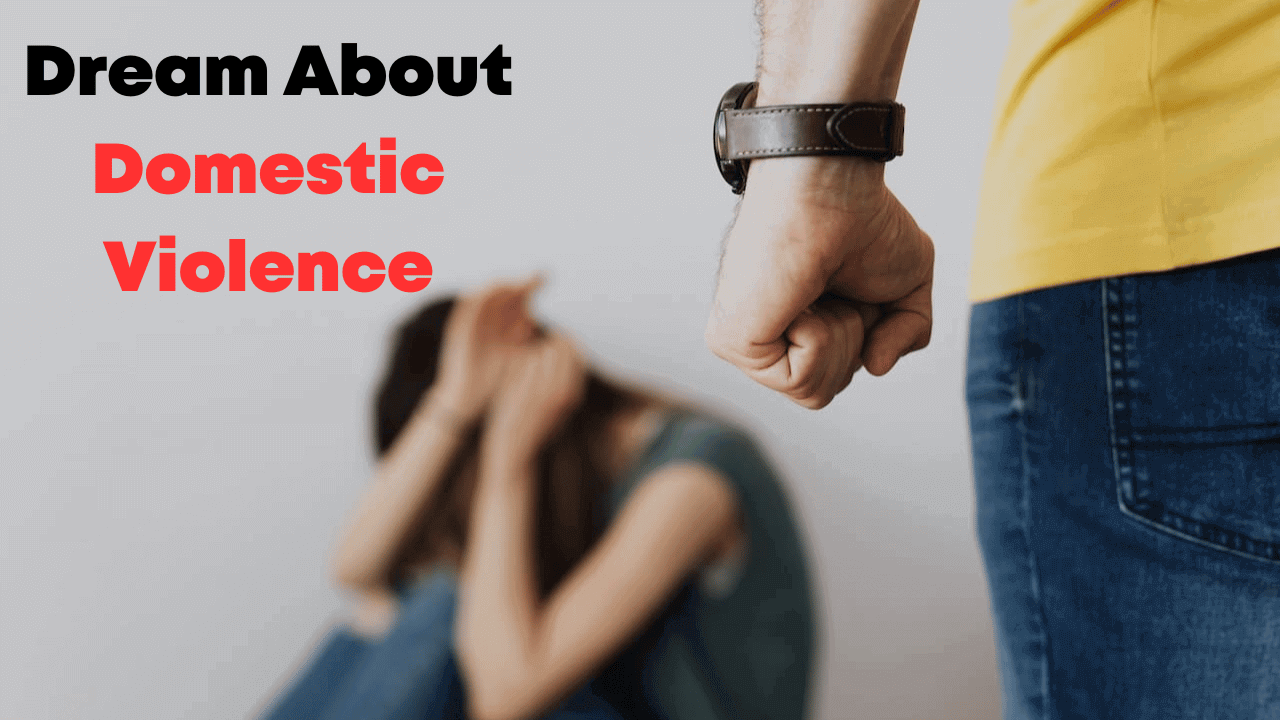Dream About Domestic Violence are the mind’s way of processing the complexities of our lives, emotions, and the world around us. When the subject turns to something as distressing and serious as domestic violence, these nocturnal narratives can leave us feeling unsettled, seeking meanings and explanations. The significance of dreams about domestic violence extends far beyond their immediate emotional impact; they delve into the deeper layers of our psyche, revealing underlying fears, unresolved conflicts, and a quest for understanding our personal and collective unconscious. This article embarks on a comprehensive exploration of dreams about domestic violence, incorporating psychological, cultural, and religious perspectives to offer a multifaceted understanding of such dreams.
Understanding The Meaning of Such Dreams
Dreams about domestic violence are not to be taken at face value. Instead, they often symbolize conflict, loss of control, and feelings of vulnerability in the dreamer’s life. From a psychological standpoint, these dreams might indicate an internal struggle with feelings of powerlessness or frustration in certain areas of the dreamer’s life. Culturally, they could reflect societal concerns about safety, security, and interpersonal relationships. Religiously, such dreams might be interpreted as a call to examine one’s actions and thoughts, urging a return to moral or spiritual alignment.
Interpreting Dream About Domestic Violence
The nuances of interpreting dreams about domestic violence lie in the specific scenarios and contexts presented within the dream. Each detail offers a clue to the dream’s ultimate meaning and its relevance to the dreamer’s waking life.
- Scenarios Section:
- Being a Victim: This scenario might represent feelings of helplessness or vulnerability in a particular situation or relationship in waking life. It could also be a reflection of past traumas resurfacing, seeking attention and healing.
- Observing Domestic Violence: Witnessing such violence might indicate a sense of guilt or complicity in a situation where you feel you’ve remained silent or inactive in the face of injustice or conflict.
- Perpetrating Violence: Surprisingly, this scenario might not necessarily reflect a desire to harm but rather an expression of anger or frustration that one feels unable to express in waking life.
Why Do People Experience Dream About Domestic Violence?
Dreams about domestic violence may stem from various psychological, emotional, and physiological factors. Psychologically, such dreams might emerge from deep-seated anxieties, unresolved conflicts, or exposure to violent content. Emotionally, they can be a manifestation of fear, trauma, or stress experienced in one’s daily life. Physiologically, stress and sleep disturbances could trigger more intense and vivid dreams, including those of a violent nature.
Spiritual Interpretation of Dream About Domestic Violence
Spiritually, dreams about domestic violence could be interpreted as a call to introspection and examination of one’s life choices and relationships. They might reveal a disruption in one’s spiritual equilibrium, suggesting a need for harmony, forgiveness, or a reevaluation of one’s path. Such dreams could also be viewed as a warning to address unresolved issues, encouraging the dreamer to seek peace and reconciliation within themselves and with others.
Biblical Interpretation of Dream About Domestic Violence
In a biblical context, dreams about domestic violence might be seen as a reflection of sin and moral conflict. The Bible often uses symbolic imagery to convey spiritual battles and the consequences of turning away from God’s path. These dreams could serve as a reminder of the importance of compassion, love, and forgiveness, urging the dreamer to turn away from anger and violence. They might also signify a call to protect the vulnerable and stand against injustice, aligning oneself with biblical teachings of righteousness and mercy.
Religious Interpretations of Dream About Domestic Violence
- Islamic Interpretation: In Islam, dreams are considered significant and are generally divided into three categories: true visions, bad dreams, and self-reflection. Dreams about domestic violence could be interpreted as a warning or a reflection of internal conflict. It is advised to seek forgiveness, make amends, and engage in prayers for peace and protection. Such dreams might also indicate the dreamer’s inner struggle with personal issues or societal injustices, urging a need for spiritual cleansing and guidance.
- Buddhist Interpretation: Buddhism sees dreams as manifestations of the mind’s condition, influenced by karma and attachments. Dreams about domestic violence might reflect deep-rooted anger, unresolved conflicts, or the cycle of suffering (Samsara) that the dreamer is experiencing. These visions are a call for mindfulness and compassion, urging the individual to look within, address these emotions, and work towards achieving peace and enlightenment.
- Hindu Interpretation: In Hinduism, dreams are believed to be reflective of one’s past karma and current state of mind. A dream about domestic violence may symbolize the consequences of actions (karma) and a disturbed state of mind. Such dreams are considered a signal to embark on a path of dharma (righteous living), emphasizing non-violence, meditation, and spiritual growth to cleanse oneself of negative energies and thoughts.
Cultural Interpretations of Dream About Domestic Violence
- African Cultural Interpretation: In many African cultures, dreams are seen as messages from the ancestors or as omens. Dreams about domestic violence could be interpreted as a sign of discord within the family or community that requires attention and resolution. They may also represent an ancestral call to address unresolved issues or conflicts, urging the dreamer to seek harmony and balance within their life and relationships.
- Native American Cultural Interpretation: For many Native American tribes, dreams are deeply spiritual and offer guidance. A dream about domestic violence might be seen as a warning against self-destructive paths or relationships that are out of balance. Such dreams could also indicate the need for healing and restoration of harmony within oneself and one’s community, emphasizing the importance of respect, peace, and the interconnectedness of all beings.
- Japanese Cultural Interpretation: In Japan, dreams can carry significant symbolic meanings, often believed to be influenced by ancestral spirits or divine messages. Dreams of domestic violence might be interpreted as manifestations of internal strife or disruptions in one’s ki (energy flow), suggesting a need to address and reconcile these disturbances through reflection, purification rituals, or seeking harmony in relationships.
What Psychology Says About Dreams About Domestic Violence
Psychologically, dreams about domestic violence are often examined through the lens of trauma, stress, and the subconscious mind’s way of processing emotional experiences. Research suggests that such dreams could stem from past or present experiences of violence, witnessing violence, or high levels of stress and anxiety. These dreams might also represent feelings of powerlessness, fear, and conflicts within interpersonal relationships. Cognitive-behavioral therapy (CBT) and other therapeutic approaches often focus on addressing the underlying issues, suggesting that healing and resolution can significantly reduce the occurrence of these distressing dreams.
How to Avoid Dreams About Domestic Violence
To mitigate the occurrence of dreams about domestic violence, experts recommend several strategies:
- Addressing Underlying Stressors: Engaging in therapy or counseling to work through trauma, stress, or anxiety can reduce the intensity and frequency of such dreams.
- Practicing Good Sleep Hygiene: Establishing a calming bedtime routine, reducing screen time before bed, and creating a comfortable sleep environment can promote more restful sleep.
- Mindfulness and Relaxation Techniques: Activities such as meditation, yoga, and deep breathing exercises can help manage stress and anxiety, potentially reducing the likelihood of distressing dreams.
- Journaling: Writing down thoughts and feelings before bedtime can help process emotions and clear the mind, aiding in more peaceful sleep.
Conclusion
Dreams about domestic violence are multifaceted, reflecting a complex interplay of psychological, cultural, and spiritual factors. From Islamic to Buddhist, and from African to Japanese perspectives, these dreams are viewed as significant signals urging introspection, healing, and change. Psychology offers insights into the emotional and cognitive underpinnings of such dreams, suggesting pathways toward resolution and peace. By understanding the diverse interpretations and applying practical strategies to address these dreams, individuals can seek a deeper understanding of themselves and find ways to navigate their emotional landscapes more effectively. For those deeply affected by these visions, consulting a professional can offer tailored guidance and support on the journey toward healing and equilibrium.

